Darwaish
Recently, I had a chance to visit District Khushab and observe a number of non-formal basic education projects initiated by the Government of Punjab with the help of international donor agency JICA (Japan International Cooperation Agency). JICA is one of the largest donors in Pakistan’s development sector and is contributing to a number of projects to improve the socio-economic condition in Punjab. I was part of a group that included JICA’s senior management in Pakistan who were visiting local community schools in Khushab (Jauharabad to be precise) to deliver some equipment to District EDO (Executive District Officer), monitor the progress and to collect material for a report for JICA headquarters in Japan. These non-formal education projects are in part government’s efforts to promote the expansion and improvement of education under National Plan of Action on Education for All and Education Sector Reforms (ESR) Action Plan 2001-2005.
The provincial government has established a separate department for Literacy & Non-Formal Basic Education with a mandate to eradicate illiteracy from the province. Some of the readers might have heard about Punjab Literacy Promotion Project (PLPP).  Literacy and Non-Formal Basic Education is one of the programs of PLPP. I don’t have exact stats with me but if I remember correctly there are 6 literacy campaigns currently underway in Punjab. Just for reader’s information, Parha Likha Punjab advertisements that we see on television and News Papers are part of a different Education campaign. There is a difference between Literacy and Education. Education is normally through a program that you follow for years, while literacy campaigns are normally project-based, just imparting the basic reading, writing and arithmetic skills. Overall, the idea is wonderful and I was very impressed by the passion and commitment shown by local people in an effort to bring positive change in their lives. I thought it would be appropriate if I share some of my observations and experiences from the trip with ATP readers. Our government is doing some rare good things too and we should give credit when its due. One can argue about proper utilization of funds like spending more money where it is needed the most, at grassroots level, rather than getting lavishly furnished offices, cars and way too high allowances in the name of planning etc.
Literacy and Non-Formal Basic Education is one of the programs of PLPP. I don’t have exact stats with me but if I remember correctly there are 6 literacy campaigns currently underway in Punjab. Just for reader’s information, Parha Likha Punjab advertisements that we see on television and News Papers are part of a different Education campaign. There is a difference between Literacy and Education. Education is normally through a program that you follow for years, while literacy campaigns are normally project-based, just imparting the basic reading, writing and arithmetic skills. Overall, the idea is wonderful and I was very impressed by the passion and commitment shown by local people in an effort to bring positive change in their lives. I thought it would be appropriate if I share some of my observations and experiences from the trip with ATP readers. Our government is doing some rare good things too and we should give credit when its due. One can argue about proper utilization of funds like spending more money where it is needed the most, at grassroots level, rather than getting lavishly furnished offices, cars and way too high allowances in the name of planning etc.
Basic Education: Overview of Problems and Issues
One of the major problems in providing education in rural areas is the scattered population. Many villages are separated by acres and acres of irrigation lands which make it almost impossible to provide schools, staff and necessary infrastructure to every village. Here term Basti comes into picture, which is cluster of houses at a reasonable distance form the main cluster of a village. In remote areas, due to agricultural activity, people would rather prefer staying at their lands and establish some sort of housing facility there, which starts gaining mass with time. Lack of planning based on ground realities; limited funds, unavailability of resources and lack of a proper strategy to monitor performance of education system are other major obstacles. Government usually opens one school in a central village (usually the largest in the area) that is supposed to provide education to children (and sometimes adults too) of 10-12 nearby villages. Most of the children from nearby villages find it very difficult to reach schools everyday by foot in extreme heat and difficult terrains (read the background information on Khushab at the end of this article).
Its very different from what we have here in cities where we have access to public transportation system, private schools are not hard to find and mostly we have densely populated areas so there are schools in every Gali Muhalla. Also the fact remains that in Pakistani villages; there is 45% drop out ratio at primary schools level. No community level motivation, encouragement or awareness campaigns exist for the parents to send their children to schools. When you have generations after generations who are kept illiterate by our system, just opening a government school in a village does not guarantee that all the parents will send their children to schools. You also have to encourage them and motivate them through community based awareness campaigns. Most of the children in rural areas start working in fields with their parents instead of going to schools mainly due to economic reasons and also because there is no school available in their own village.
Government’s Action Plan: Education For All
To address the education related issues and to devise a global policy and action plan, World Conference on Education for All was held in Jomtien, Thailand in 1990 in which more than 1500 delegations from 155 countries participated. This was followed by the World Education Forum, Dakar in 2001 where ministers of education from 182 countries re-affirmed their governments commitments towards Education For All. An action plan called Dakar Framework for Action was adopted and every country was required to take necessary measures to ensure basic education and literacy. In order to honor the Government of Pakistan’s commitments made in Dakar Framework for Action, the provincial government set up a separate department for basic education and literacy.
The challenge was to devise a framework that would, with the existing resources on hand, ensure the maximum output. Also a lesson was learned from the past literacy campaigns, which failed mainly because nobody thought of getting local communities, involved and get their support and participation.
The authorities responsible for this project are Literacy and Non-Formal Basic Education Department (LNFBED), Government of Punjab, Ministry of Education and the District Governments. Japan International Cooperation Agency (JICA) is providing technical assistance, funds and input to achieve the objectives of this project. For example, they provide learning kits; books, notebooks, blackboard, tables, reading and writing material, chairs (for teachers only, students were sitting on the ground in schools we visited in Jauharabad), transportation, electronic equipment and so many other related things. Initially four model districts Khushab, DG Khan, Khanewal and Mandi Bahauddin were selected for the Pilot phase of this Literacy campaign to test and improve the proposed framework and possibly with an aim to have 100% literacy rate in each of them. The target of this project is the whole province population aged 5-35.
To achieve this goal, a complete census was conducted covering newborns to 70 years old, but only 5-35 group was targeted for Literacy and Non-Formal Basic Education. Other departments for social, health and development activities will utilize the rest of the data. A comprehensive database of all the out-of-school people aged 5-35 was required and for this a program called LitMIS (Literacy Management Information System) has been developed.
Literacy Management Information System (LitMIS)
LitMIS is an attempt to devise a practical and coherent framework, based on ground realities rather than office speculations, to overcome the principal obstacles in imparting education to people, especially in remote areas. Grass root level surveys were conducted initially using multiple survey apps and then a broader map was developed by plotting geospatial data with the help of GIS (with input from Revenue and Estate Departments). All out-of-school people are targeted through community level motivational programs and are encouraged to go back to schools and atleast have basic education. The idea is to get local communities involved to setup their own schools in each village, supported by government of Punjab and JICA. Local village communities are encouraged to open a one or two room school in one of the resident’s house.
Its like one local resident donates one or two rooms of his/her house as per the timings decided by local elders and school teachers. The government in return provides them with all the required stationary and literature and anything else they need for school. I am not sure if I heard it right but electricity bill is waived too. Each teacher is usually with qualification ranging from Matric to BA. Usually lady teachers are appointed for Non Formal Basic Education (NFBE) schools.
Adult Literacy Centers (ALC) utilize both males and females; male for males, female for females. Adult Literacy Teachers are given 3 days training while Non Formal Basic Education Teachers are given 15 days training. A nominal stipend of 2000 Rs is paid regardless of qualification and the distance they cover to reach school (many villages do not have a qualified female to teach children so they also come from nearby villages). Most of the teachers told me that even these 2000 rupees are paid after 2-3 months and they are only doing this job so that their future generations have a chance to live a better life. Since the room(s) for schools are provided by local residents so they are not in a particularly good shape (brick walls, no paint) and there was not even a fan in one of the schools we visited (temperature was 42C that day). There are no chairs or desks for students and they have to sit on a rug on the ground (consider a downgraded version of Taat Schools). I think with a little planning, help and effort by local people, the condition of classrooms can also be improved.
For example, it doesn’t cost much at all to get these classrooms painted. A few thousand rupees can do the trick in my view but very little attention has been paid to the fact that the environment is a major factor that affects children’s learning and keeps them motivated to come to school regularly. Punjab government has spent 190 million Rupees just on advertising Parha Likha Punjab campaigns with President and Chief Minister’s photos. A small chunk of that wasted money could have totally transformed these schools. While discussing this same issue with EDO Khushab of Literacy Department, I came to know that if somebody wants to help these schools, s/he has to get permission from Secretary Education in Islamabad for this little thing. It was quite astonishing because what is the point of having local city governments if people still have to go to Islamabad or Lahore to get these little things done? Whatever happened to delegation of authority?
The Role of Local Mobilizers
So coming back to the topic, all the supervision and monitoring of schools is done by the Literacy Mobilizers who get a minor allowance for visiting each school and act as a bridge between government and the local people. One of the Literacy Mobilizer told us that in 2001 government fixed 200 Rs per visit/inspection allowance and 6 years have passed since then with no increase in the allowance. Literacy Mobilizer is a government employee of literacy department who manages and watches over schools working under NGOs supervision. This amount is quite unfair and unrealistic keeping in mind the distance between schools, cost of transportation etc. Even if they use famous Chin Chi, they can only pay for their petrol expanses in rupees 200.
My Overall Impression
Overall, I was impressed by this pilot phase progress its execution which is being managed reasonably well. The most striking thing was the response from local communities, their passion and commitment to make sure their children atleast have access to basic education. I asked one of the Number Daar (village elder) of a local village that what he thinks about these schools. He smiled and said “I don’t know how beneficial this will be but we just hope that our children will learn something atleast and their lives will be different from ours, better and prosperous�.
Full credit to government of Punjab for developing this wonderful idea and making it work. Yes, there are problems in execution, some of the polices are hard to understand and I felt a lot things can be done in a better way but we should also keep in mind that this kind of community development idea is relatively new in Pakistan and it will only improve and become more effective with time. Sometimes we do not give enough credit to our government for some of the rare good things it does. I hope more people get involved in these kinds of community based education projects and help Pakistan eradicate illiteracy.
Background Information: How Education For All Idea Evolved
At the World Conference on Education for All (Jomtien, Thailand 1990) some 1,500 participants, comprising delegates from 155 governments, policy-makers and specialists in education and health, social and economic development from around the World, met to discuss major aspects of EFA. Jomtien Conference clearly defined the basic learning needs of the child i.e. learning tools (such as literacy, oral expression, numeric, and problem solving) as well as basic learning contents (such as knowledge, skills, values and attitudes). The World Declaration on Education For All and the Framework for Action to meet Basic Learning Needs, adopted at Jometien, foresaw the need for an end of decade assessment of progress as a basis for a comprehensive review of policies concerning basic education. A number of meetings, conferences and forums were held in 1990’s to assess the achievement/progress and revise the targets, goals and policies in EFA.
Ten years after Jomtien, the countries and funding agencies gathered in Dakar and reaffirmed their commitment in providing Education For All (EFA). The World Education Forum, convened by UNESCO, UNDP, and UNFPA brought together 1,500 participants from 182 countries, as well as major funding agencies. It ended with the adoption of the Dakar Frame-work for Action, wherein ministers of education and other government representatives, heads of United Nation agencies, the donor community and representative of NGOs, indeed all participants, committed themselves to achieve the goals and targets in EFA by the year 2015. In order to honor the international commitment reflected in the Dakar Framework, EFA National Plan of Action (NPA) has been developed through broad-based consultations with principal actors of EFA and stakeholders. A number of projects are underway in Pakistan with the help of international donor agencies.
Background Information: Khushab
Khushab district situated between Sargodha and Mianwali, is one of the districts of Punjab province in Pakistan. Khushab, which lies at the foot of the Salt range, has two tehsils: Khushab and Noorpur Thal. It is an old city near the river Jhelum.
The district is headquartered at Jauharabad. One third of Khushab consists of hilly areas. The population of Khushab is over one million with reasonably high literacy rate. This district is quite rich in natural resources (salt & coal) etc. People are very hardworking and most of them are associated with farming and agriculture.
Khushab is famous because it consists of beautiful lakes, waterfalls, jungles, natural pools and ponds, mountains and thal (desert areas), rivers and lush green agriculture land. There is a famous valley called Soon Valley in Khushab, which has two well renowned Uchhali Lake and Khabikki Lake. Both lakes were in terrible condition a few years ago but now thanks to United Nations funding, some restoration work is underway. I read an article on ATP by our fellow blogger Shirazi about Uchhali Lake Complex and I think he wrote about his observations made 6-7 years ago. I can assure you that Uchhali Lake today is nothing like what it was years ago. Hopefully after the completion of ongoing restoration work, we will be able to see the true beauty of this lake again. Khushab is also known for its special sweets shops, like Amin Dhoda Shop, Anwar Dhoda House. Dhoda is a famous sweet of Khushab & this city is famous for dhoda sweet. Khushab also has a heavily guarded 50 MWT heavy water reactor at Chashma.
All the photographs have been taken by author and his friend Yasir Hussain, who has also been a great help in correcting facts and figures in this article :). Click on the photographs to have a larger view.
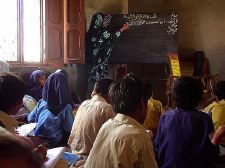
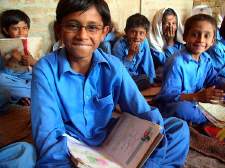
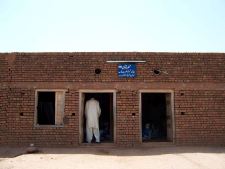
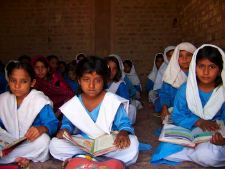

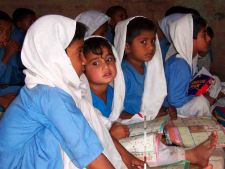
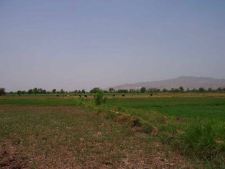

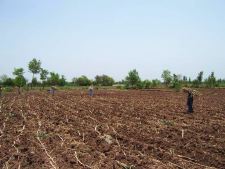




















































thanks to all brother and sisters who feel pain of the nation and have the deep sence to do some thing to bring the revolutin to uplift the poors specially rural poor. being rural developer i slut to all have the sence. respected alls in thes days i am working for my MS thesis my area of study is causes of gender disparity at primary school education in district khushab. all of you are requested to ples support and guide me in this regard.
thanks a lot
charagh ali 03315440594
MS-RD iiui
Literacy Empowers
International Literacy Day 8th September 2009
This year the theme for international Literacy Day is “The Power of Literacy”, it aims on empowering the role of literacy and its importance for participation, citizenship and social development.
“Every educated person is not rich, but every educated person has a way out of poverty.” – K Bianco
Illiteracy is a plague that affects 600 million Asians. It hinders development and progress. It is the root of poverty and exploitation.
Over 600 million people in asia cannot read or write, this is 4 times the total of Africa, latin America, Europe and Eurasia combined.
Children are not sent to school because their parents are either too hungry, too poor or too sick.
1 in 2 girls are illiterate in Bangladesh, India and PAKISTAN.
It is time for all of us who are privileged to be literate to help those who are struggling to fight against poverty. It is all of us who have the power to give a chance to all those who deserve our help.
It is time to stand up and wage a war against ILLITERACY.
An inspiring video:
http://www.youtube.com/watch?v=Q2gqExhmeIg&feature =related
Abida Mahmood
General Secretary
Pakistan Education Watch(PEW)
web: http://www.pew.org.pk
PEW is a network of voluntary people and institutions committed to the cause of ‘Quality Education For All’ in Pakistan. It believes that education is the basic human right of all citizens- men, women, children, youth and adults. Education being the foundation of sustainable development and improvement of quality of life of all people, must be promoted through formal and non-formal channel and methods. Pakistan Education Watch aims to mobilize all sections of the society to realize the urgency of eradicating illiteracy.
To post to this group, send email to pakeducwatch@googlegroups.com
For more options, visit this group at http://groups.google.com/group/pakeducwatch?hl=en
PEW is now on face book. For further details please visit:
http://www.facebook.com/group.php?gid=33490863568
~~Punjab government has spent 190 million Rupees just on advertising Parha Likha Punjab campaigns with President and Chief Minister’s photos. ~~
Help is on the way!
There will now be accountibilty and performance expected.
No more toys for big boys.
Yes, I do have audacity of hope.
~~Most of the children in rural areas start working in fields with their parents instead of going to schools mainly due to economic reasons and also because there is no school available in their own village.~~
What if, the education was actually relevant to their lives in villages?
We need a curriculum and standards exclusively focused on local cultivation issues, local history, local language, and mixed up with basic sciences, health and hygiene and arithmetic and faith.
Naturally, this concept foreign to the “baus” in Education Department.